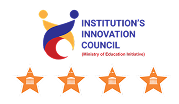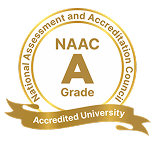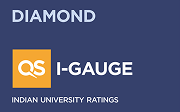

Quick Links
Education Qualification
Ph.D., M.Sc. Genetics and Plant Breeding & B.Sc. (Hons.) Agriculture
Designation
Department
Research Area
• Crop breeding for stress resistance
• Climate resilient crop improvement
• Biotechnology based Plant Breeding
• Variety/Hybrid development
• Speed breeding
• Mutation Breeding
General Information
Dr. Sanyam holds a Ph.D. in Genetics and Plant Breeding from Navsari Agricultural University, Navsari. His research focused on improving rice varieties using both traditional breeding methods and modern biotechnological tools. During his Ph.D., he worked on developing rice varieties with better performance under different environmental conditions. He has also cleared the ASRB-NET exam, further demonstrating his expertise in the field. He has a strong academic background and teaches undergraduate courses in genetics, plant breeding, and agricultural sciences. He has been involved in several research projects aimed at enhancing crop varieties through conventional breeding. His contributions include seven research papers, three book chapters, and three articles. With his knowledge, dedication, and teaching skills, he is a valuable asset to GUNI-KKIASR and the field of Genetics and Plant Breeding.
Profile
Research Paper
1. Satasiya, P., Patel, S., Patel, R. Raigar, O. P., Modha, K., Parekh, V., Joshi, H., Patel, V., Chaudhary, A., Sharma, D. and Prajapati, M. (2024). Meta-analysis of identified genomic regions and candidate genes underlying salinity tolerance in rice (Oryza sativa L.). Scietific Reports, 14, 5730. https://doi.org/10.1038/s41598-024-54764-9
2. Rana, V. B., Makati, J. P., Chaudhary, N., Joshi, R. J., Vanapariya, S., Shah, Z. S., Malaviya, A. V. and Patel, S. (2022). Evaluation of Genetic Variability Parameters in 185 F3 Progenies of Black Gram [Vigna mungo (L.) Hepper] for Seed Yield and Related Components. Biological Forum, 14(4), 1056-1060.
3. Patel, S., Patel, R. K., Satasiya, P. N., Patel, V. P., Modha, K. G., Patel, P. B., Patel, A. V. and Rana, V. B. (2022). Assessment of heritability and genetic advance in segregating generations for grain yield and its attributing traits in rice (Oryza sativa L.). The Pharma Innovations, 11(11), 1605-1608.
4. Satasiya, P. N., Patel, R. K., Joshi, H., Patel, V. P., Parekh, V. B., Modha, K. G. and Patel, S. (2022). Studies on heterosis, heritability and genetic advance using generation mean analysis for yield and its attributing traits in rice under saline conditions. The Pharma Innovations, 11(9), 2269-2274.
5. Patel, M., Patel, V., Patel, S. and Patel, R. (2020). Assessment of Genetic Variability for Yield and Yield Attributing Traits in F2 Population of Intervarietal Cross in Rice (Oryza sativa L.). Int. J. Curr. Microbiol. App. Sci., 9(3), 1550-1555.
6. Patel, S., Patil, H. E., Pali, V. and Patel, B. K. (2020). Genetic diversity analysis in finger millet [Eleusine coracana (L.) Gaertn.]. Journal of Pharmacognosy and Phytochemistry, 9(1), 677-680.
7. Patel, S. N., Patil, H. E., Patel, S. P. and Patel, U. M. (2018). Genetic diversity study in relation to yield and quality traits in little millet (Panicum miliare L.). Int. J. Curr. Microbiol. App. Sci., 7(6), 2702-2711.
Book Chapter
1. Patel, A., Patel, S., Patel, G. M. and Patel, H. R. (2023). Introduction to Plant Omics: New Insights into Crop Improvement Strategies. Modern Approaches in Plant Breeding: Enhancing Crop Genetics, 308-320.
2. Naidu, A. C., Yernaidu, Y. and Patel, S. (2022). Recent Technological Advancement to Enhance Quality Aspects of Sugarcane. Advances in Agronomy, 19, 139-157.
3. Yernaidu, Y., Patel, S., Nanda A. and Avinash G. J. (2022). Carbon sequestration as affected by cropping system. Environmental chemistry for sustainable world.
Articles
1. Patel, S. and Yernaidu, Y. (2022). Finger Millet: A Wonder Grain Rewarding Health Insurance. Agriculture and Food: E-Newsletter, 4(4), 240-242.
2. Yernaidu, Y., Patel, S. and Naveen, Y. K. V. (2022). Abiotic and Biotic Stresses: Its Effects and Management in Pulses. Agriculture and Food: E-Newsletter, 4(4), 271-275.
3. Naidu, A. C., Yernaidu, Y. and Patel, S. (2022) Response of Agricultural Crops to Free CO2 Enrichment. Agriculture and Food: E-Newsletter, 4(5), 277-279.
AWARD AND ACHIEVEMENTS
1. Contribution as a Reviewer (2023): Dr. Sanyam had significantly contributed as a reviewer of Scientific Research Articles for 11th IEEE Humanitarian Technology Conference organized by IEEE Gujarat Section at Marwadi University, Rajkot.
2. Best Article Award (2022): Dr. Sanyam was honoured with best article award for the article entitled “Abiotic and Biotic Stresses: Its Effects and Management in Pulses”.
3. SHODH- ScHeme of Developing High Quality Research Fellowship (2019-22): Dr. Sanyam was awarded with a stipend for his Doctoral research work through SHODH- ScHeme of Developing High Quality Research Fellowship by KCG, Govt. of Gujarat.
4. University Fellowship (2014-17): Dr. Sanyam received University Fellowship for UG Program in Anand Agricultural university continuously for three years in bachelor’s degree.









